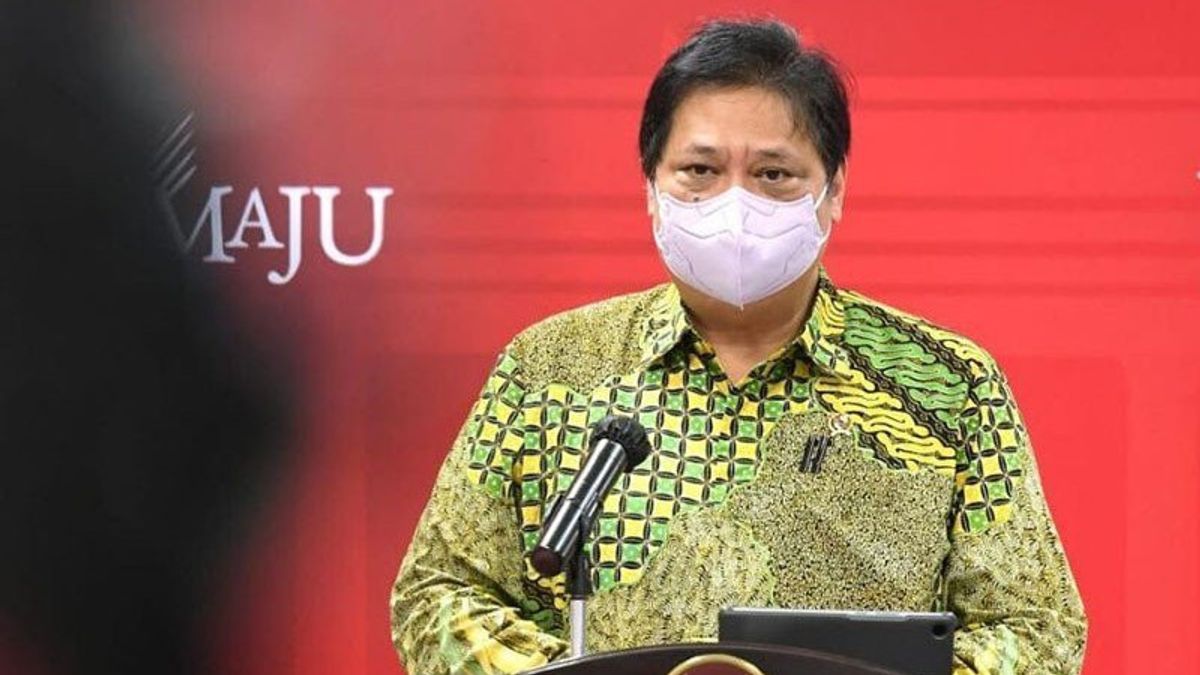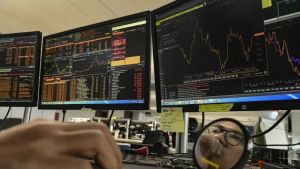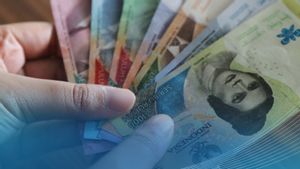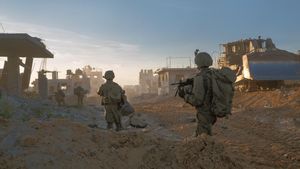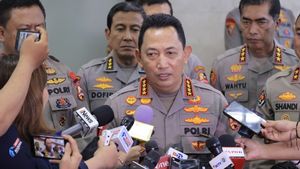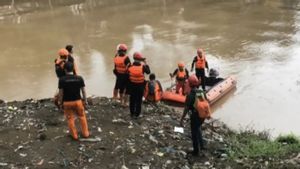JAKARTA - Coordinating Minister for the Economy Airlangga Hartarto said the government was taking quick and appropriate steps in dealing with the COVID-19 pandemic, which has been going on for the past three years.
According to him, the most crucial decision occurred when the pandemic was detected in the country at the beginning. The reason is, the COVID-19 situation is a crisis that has an impact on various sectors and is not only on health problems. This was revealed by him when giving a public lecture at the Rajaratnam School of International Studies (RSIS) and the National University of Singapore (NUS).
At that time, no policy could be directly implemented because we have never experienced a health crisis like the previous pandemic. So that the Government of Indonesia really has to create the right new policy to deal with COVID-9," he said in a written statement earlier this week.
According to Airlangga, the government then designed and implemented a "gas and brake" policy for efforts to control the outbreak as well as economic protection measures.
In addition, the state also carried out structural reforms which were the third pillar within the framework of the strategy at that time.
"I am a person who believes that the crisis period is the right opportunity to carry out structural reforms on the domestic economy," he said.
On that occasion, Airlangga acknowledged the difference when giving public lectures before Indonesian students compared to when in front of foreign students, in this case Singapore.
"In public lectures in Indonesia, explaining the strategy for handling COVID-19 becomes easier because students experience this policy in their daily lives, so they can relate. Meanwhile, in front of foreign students, I have a special mission, namely explaining the greatness of the Indonesian nation," he said.
With around 17,000 islands and extraordinary challenges in the distribution of vaccines and medicines, so that really requires extraordinary cooperation from the whole community," Airlangga continued.
The public college session was then continued with a question and answer session by participants who attended entirely offline in the auditorium.
The indoor participants with a capacity of 500 also looked full of enthusiasm for public lectures until 9 pm local time.
One of the questions is that it invites quite a lot of attention from the audience, namely the possibility of increasing the price of instant noodle packaging foods produced by Indonesia due to the war between Ukraine and Russia.
"Although the war between Ukraine and Russia, which has been going on for the past few months, has also affected commodity and wheat prices, the instant noodle prices are still relatively stable," said Coordinating Minister Airlangga.
The English, Chinese, Japanese, Arabic, and French versions are automatically generated by the AI. So there may still be inaccuracies in translating, please always see Indonesian as our main language. (system supported by DigitalSiber.id)
